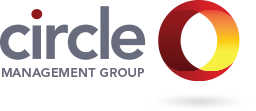If nothing else, 2020 has been a crash course in how to deal with globe-spanning disasters. Are you concerned about maintaining compliance during times of crisis?
Virtually every organization in every industry has felt some impact from the pandemic crisis. However, drawing lessons from this experience may be challenging, particularly for compliance departments.
Maintaining Compliance During Crisis
In this post, we will explore some of the most critical insights for compliance during times of crisis, whether that’s another pandemic or the result of socioeconomic upheaval.
Key Career Moments and Crisis
It would be nice if careers were smooth, ascending arcs taking an employee from an entry-level position to higher positions with increasing personal and professional rewards. However, even in times not marred by a crisis, that is not the case. Add a dash of crisis, such as global uncertainty and we have career paths marked by numerous critical moments – furloughs, layoffs, organization restructuring, team changes, and more. Each of these moments adds stress and uncertainty and may encourage employee misconduct. Compliance leaders must understand this and prepare for it.
The Importance of “Now”
Compliance departments often operate in a world of “always”. This is a natural extension of the regulatory framework that surrounds compliance. The problem is that the world, unlike those frameworks, is not static. What this means is that compliance leaders must be able to adapt to the needs of “now” and deliver critical guidance and support that fits the challenges and risks that organizations are facing at the moment. For instance, during the pandemic and ensuing remote work shift, reporting and safeguarding company information have become much, much more critical, not to mention difficult.
Ethics in Remote Work
Ethical visibility is difficult enough to maintain when work is conducted in a corporate office environment. It becomes exponentially more challenging in a remote work situation, but compliance leaders must still uphold their responsibility here. Ethical actions affect company climate, which is a major contributor to the strength and quality of an organization’s culture. Compliance leaders should provide examples of desired, ethical behavior to help guide employee interaction through digital technology during remote work.
Discrimination
COVID-19 has introduced some subtle and not-so-subtle forms of discrimination into the minds of employees. It has become increasingly common for employees to make assumptions based on race and ethnicity, or even country of origin or age. These assumptions are all discriminatory in nature and must be curbed – compliance leaders can do this by sharing accurate information, discussing how such ideas constitute discrimination and instituting zero-tolerance policies for this type of activity.
One Size Does Not Fit All
When it comes to integrity and ethics training, one size does not fit all. Organizations must learn to use managers to inform the creation of training materials, and then allow those managers leeway to choose the most appropriate options to fit specific situations and needs as they arise.
Dealing with disasters and crises will never be simple, but with the information above, it should be easier. Compliance leaders must take a proactive stance informed by the 2020 pandemic to lead during times of crisis.
You may also be interested in:


